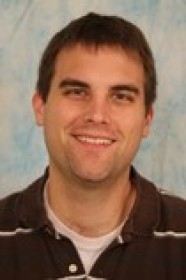
12:00 pm to 1:00 pm
Event Location: NSH 1507
Bio: Curtis Boirum is a M.S. student in the Robotics Institute advised by William “Red” Whittaker. He received an M.S. and B.S. in Mechanical Engineering from Bradley University in Peoria, IL in 2011 and 2009, respectively. He also received a B.S. in Physical Science from Eureka College in Eureka, IL in 2010. He has previously researched novel omnidirectional propulsion mechanisms for small multi-rotor aircraft and surface rovers. His current research is in novel methods to improve the capabilities of surface rovers through the application of new technology and theory. Navigation, and specifically localization for small planetary rovers has been his focus at Carnegie Mellon University.
Abstract: Achieving meaningful exploration and discovery in our universe pivots on knowing where we are as we navigate the unknown. In many terrestrial cases this problem – the localization problem – has been remedied by precise a priori mapping of environments and developing advanced infrastructure such as global positioning satellites (GPS). However, current extraterrestrial surface exploration robots do not have these absolute measurement tools at their disposal, and achieving precise localization is still a limiting and time consuming problem. Even though it is essential to modern spacecraft and naval vessels, observing the sun and stars as absolute orientation references had, until now, not yet been fully exploited in real-time on surface rovers. To this end, this work asserts that using a visual solar compass as a navigational aid to continuously determine absolute bearing vastly improves the ability of planetary rovers to navigate and localize, and supports this claim through the presentation of experimental results from the development and field testing of a visual solar compass.
